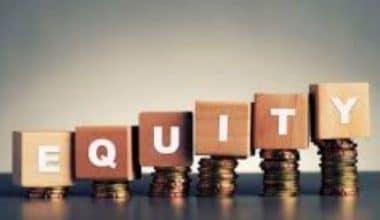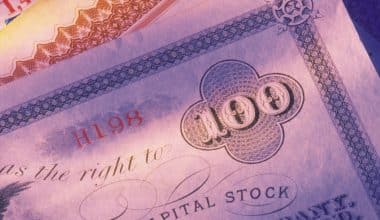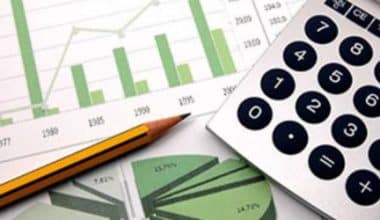Managerial accounting software is a tool for keeping tabs on and analyzing a company’s financial records. It can be used to compile reports, monitor costs, and spot developments. Using a piece of managerial accounting software can help in many ways. Accounting is a crucial task for any firm to equally ensure its survival and continued profitability. The procedure involves collecting, identifying, recording, measuring, classifying, verifying, interpreting, and disseminating monetary information. A company can tell if it is making money or losing money by looking at its financial records. Different kinds of accounting exist. Management accounting is one such field. It’s one of the three main kinds of accounting done these days. Read on for further explanation about managerial accounting and its software because Everything you need to know about managerial accounting software is included in this guide.
Managerial Accounting Software
Managerial accounting software is a form of accounting software that emphatically assists firms in monitoring and analyzing data pertaining to their financial transactions. It is possible to make reports with it, as well as keep track of spending and recognize trends with it. The use of management accounting software comes with a number of benefits, including the following:
Enhanced productivity: Because managerial accounting software can automate a significant number of the procedures associated with financial reporting, it can help firms save both time and money.
Accuracy enhancement: Managerial accounting software can assist firms in better tracking the correctness of their financial data, which in turn can lead to improvements in the quality of the decisions they make.
Enhanced insights: Managerial accounting software can assist organizations in recognizing trends and patterns within their own financial data, which in turn can assist the firms in improving their decision-making processes regarding their future.
The following is a list of some of the most popular managerial accounting software programs:
- QuickBooks
- The Sage 50 cloud Accounting System
- Microsoft Dynamic General Ledger
- Oracle Financials
- SAP Business One
When selecting a software program for managerial accounting, it is vital to take into consideration the size and complexity of your organization, as well as your available budget and your individual requirements. In order for their clients to devote their full attention to expanding their businesses, accountants should help them manage the business’s back end by supplying them with accurate data and auditable financials. Insightful conclusions, supported by relevant facts, are what managerial accounting provides. It provides a streamlined perspective on complex financial data for managers. Managerial accounting, by providing information on production costs, market conditions, and possible profits, can aid a manager in setting the initial selling price for a brand-new product. Managerial accounting serves the following purposes:
#1. Presentation of Data
Management accountants change the profit and loss statement and balance sheet to make the data easy to understand.
#2. Data Modification
Management accountants change the numbers in financial accounts based on what their business needs to look at. For instance, they can give you information about a certain product, location, time period, supplier, or sales area.
#3. Analysis and Explanation of the Data
Management accountants rearrange the financial accounting data and make comparative statements with different factors. They also come up with numbers like ratios and key performance indicators (KPIs) that help predict trends and report on how well things are going.
#4. Qualitative Data
This is information that a researcher gets from things like feelings and themes. It’s not the usual kind of info that comes from counting and math. In business, employee satisfaction, the success of management policies, and the quality of relationships with suppliers are all examples of qualitative data.
#5. Forecasting
This can be done on a short-term or long-term basis, and the expert has to try to figure out if the goals that have been set can be reached.
#6. Organizational Assistance
Some businesses have trouble figuring out how to use their resources, like money and staff. A management analyst can suggest how a business should be set up to make the best use of its resources. They can also figure out how much certain activities and their management will cost.
#7. Planning
Capital budgeting, fund flow statements, cash flow statements, budgets, standard costing, and marginal costing are all common tools for planning in management accounting.
#8. Coordination of the Budget
Each department or program should set its financial goals for a certain time period. A management accountant can make these functional budgets based on each area to make sure that the higher-level budget is managed well and that everything is coordinated.
#9. Budgetary Control
Standard costing lets companies turn their goals into targets for a certain amount of time. It also helps find “scope creep” and gives good budgetary control.
#10. Help With Making Choices
With accurate and up-to-date financial information, managers can come up with policies and make the best decisions.
#11. Additional Research
Management accountants frequently conduct unique cost and economic studies to solve management’s pressing problems.
#12. Employee Motivation
Management accountants are directly involved in employee motivation since they determine whether or not the budget is favorable. They can suggest bonuses or other methods of motivating personnel.
Managerial accountants can also manage cash flow, establish sales strategies, determine customer pricing, and calculate inventory costs. Typically, these activities result in swift, internal decisions. Management accounting otherwise plays a crucial function in ensuring control and efficiency in the public sector. Public sector organizations are frequently more dependent on stakeholders than private sector organizations. For instance, a public health department is answerable to an entire municipality or county, and its decisions are subject to public scrutiny. This makes the company’s financial management and accounting decisions more transparent and vulnerable. Accountants were historically passive agents in public companies. They can now utilize new instruments, such as management information systems and collaboration with other agencies.
Management accounting is constrained by the same limitations as fundamental financial accounting. The accuracy of the managerial accountant’s conclusions is directly related to the precision of the financial statements of the company. In addition, the management accountant must communicate their findings in a manner that allows the decision-making manager to see the big picture. Frequently, managers lack sufficient accounting knowledge to comprehend the terms and intricacies of an accounting analysis, let alone scale the data appropriately across the organization. The managerial accountant analyzes all aspects of a business and can reduce it to a KPI (key performance indicator) by which a person or organization can be measured and acted
What Is Management Accounting Software?
Accounting software keeps track of and manages an organization’s day-to-day financial activities, such as managing fixed assets, expenses, revenues, accounts receivable, accounts payable, subledger accounting, reporting and analytics.
What Are the Three Types of Accounting Software?
However, the six most popular types of accounting software are:
- Billing and invoicing accounting software.
- Payroll software.
- Software for small business accounts.
- ERP software is used for keeping track of finances.
- Spreadsheets are used in accounting tools.
- Customized accounting tools.
What Is an Example of Accounting Management Software?
A cost-effective option created for small enterprises is QuickBooks Online. To assist small and expanding organizations, firms, and freelancers in streamlining their accounting and financial management procedures, this cloud-based program markedly offers all key accounting capabilities on a single platform.
How Many Types of Management Accounting Systems Are There?
There are 4 types of management accounting systems:
- Cost accounting systems: These systems track and report costs associated with products, services, and activities.
- Profitability analysis systems: These systems help managers identify and analyze the factors that contribute to profitability.
- Budgeting and forecasting systems: These systems help managers plan for the future by developing budgets and forecasts.
- Performance evaluation systems: These systems help managers evaluate the performance of their organizations and employees.
Each type of system has its own strengths and weaknesses, and the best system for a particular organization will depend on its needs and goals.
Is Excel an Accounting System?
One of the most popular accounting applications is QuickBooks; nevertheless, it differs from Microsoft Excel in terms of how it works, how much it costs, and how well it fits into your company’s structure.
What Are the Applications of Managerial Accounting?
Forecasting, planning, and budgeting overall. The goal of managerial accounting generally is to project the company’s financial orientation for the upcoming months and years through forecasting and planning. These plans frequently include forecasts for both costs and revenues.
Who Uses Managerial Accounting?
Managerial accounting focuses on internal users, such as administrators, product managers, and sales managers, who use accounting data to make crucial decisions.
What Type of Information Is Used in Managerial Accounting?
Managerial accounting is the category of accounting that evidently provides managers and decision-makers within an organization with financial information. Various financial metrics, including revenue, sales, operational expenses, and cost controls finally, are frequently utilized in managerial accounting.
Bottom Line
Businesses need managerial accounting software to particularly help them track and analyze their financial data. This software basically can help businesses identify areas where they are spending too much money, where they are losing money, and where they can make improvements. Managerial accounting software can also help businesses plan for the future by forecasting sales and expenses. Some advantages of utilizing such managerial accounting software cannot be overemphasized. For businesses, nonetheless, this means less work and more profit. Better information means better choices for businesses. Furthermore, It has the potential to increase productivity in corporate settings. Moreover, Businesses may benefit from its use. If you are a business owner, you should think about investing in managerial accounting software.
Related Posts
- RESTAURANT MANAGEMENT: What It Is, Jobs, Salary, Software and More
- IT ASSET MANAGER: Job Description, Software & Salary
- ACCOUNTING MANAGER: Meaning, Duties, Salary, Resume & Qualifications






